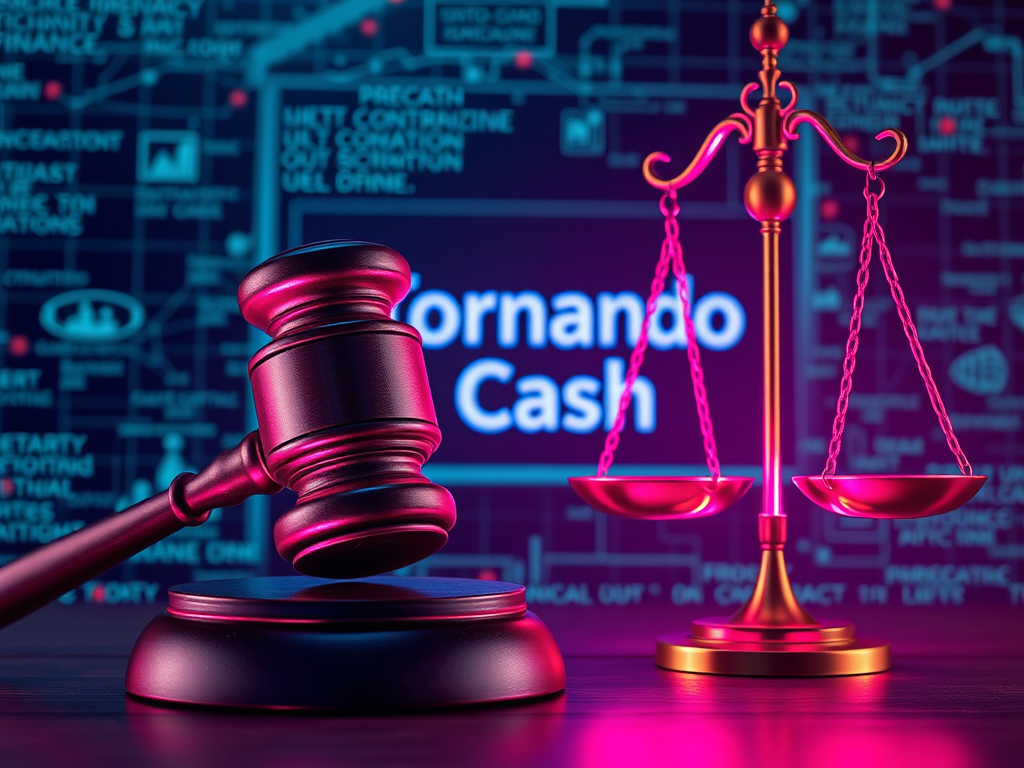We’ve explored the history of money, delved into revolutionary blockchain technology, and understood the basics of cryptocurrencies. Now, it’s time to put this knowledge into practice. In this article, we’ll guide you through the practical aspects of acquiring, storing, and using cryptocurrencies and introduce you to the world of crypto exchanges.
Acquiring Cryptocurrency: Your First Steps
Entering the world of cryptocurrencies can seem daunting at first, but acquiring your first digital assets is simpler than you might think. Here are the main ways to get started:
- Cryptocurrency Exchanges: These platforms allow you to buy cryptocurrencies using traditional (fiat) currencies or other cryptocurrencies. As of 2024, some of the most popular and reputable exchanges include:
- Kraken: Known for low fees and suitability for experienced traders.
- Coinbase: Highly recommended for beginners due to its user-friendly interface.
- Binance: Popular for its wide range of supported cryptocurrencies and advanced trading features.
- Gemini: Offers robust security features and educational resources, making it a good choice for those looking to learn more about crypto.
- Peer-to-Peer Transactions: Some platforms facilitate direct transactions between individuals, allowing you to buy crypto from other users.
- Bitcoin ATMs: These machines, available in many cities, allow you to purchase Bitcoin and sometimes other cryptocurrencies with cash or a debit card.
- Earning: Some platforms offer crypto rewards for completing tasks or participating in their ecosystems.
Before making your first purchase, it’s crucial to research, understand the risks involved, and never invest more than you can afford to lose.
Wallets: Securing Your Digital Assets
Once you’ve acquired cryptocurrency, you need a secure place to store it. This is where crypto wallets come in. A wallet doesn’t store your coins; instead, it stores the private keys that give you access to your assets on the blockchain.
There are several types of wallets, each with its balance of security and convenience:
- Hardware Wallets: These are physical devices that store your private keys offline. They offer the highest level of security but are less convenient for frequent transactions. As of 2024, two leading brands are:
- Software Wallets: Can be desktop applications, mobile apps, or browser extensions. They’re more convenient but potentially less secure if your device is compromised.
- Paper Wallets: These are physical documents containing your public and private keys, often in the form of QR codes. They’re secure against digital threats but vulnerable to physical damage or loss.
- Web Wallets: Provided by exchanges or other online services, these are the most convenient and the least secure, as you trust a third party with your keys.
When choosing a wallet, consider the types of cryptocurrencies supported, ease of use, and the balance between security and convenience that suits your needs.
Securing Your Assets: Best Practices
Regardless of the type of wallet you choose, following these best practices can help keep your digital assets safe:
- Use Strong, Unique Passwords: Avoid using the same password across multiple platforms.
- Enable Two-Factor Authentication (2FA): This adds an extra layer of security to your accounts.
- Backup Your Wallet: Store your recovery phrase or private keys in a secure, offline location.
- Be Wary of Phishing Attempts: Always double-check URLs and email addresses to avoid fake websites that steal your information.
- Keep Software Updated: Ensure your wallet software and devices are always updated with the latest security patches.
- Use a VPN: As of 2024, a Virtual Private Network (VPN) is highly recommended for enhancing security when trading or accessing cryptocurrency accounts. Some top VPNs for crypto trading include:
- NordVPN: Best for secure crypto trading due to its strong encryption and no-logs policy.
- Surfshark: Known for being affordable and reliable for anonymous trading.
- ExpressVPN: Offers robust security features and solid performance.
Remember, in the world of cryptocurrencies, you are your bank. With this freedom comes the responsibility of securing your assets.
Using Cryptocurrencies: Beyond Speculation
While the primary use of cryptocurrencies as of 2024 remains investment and speculation, their potential uses go far beyond this. Here are some ways cryptocurrencies are being used in practice:
- Decentralized Finance (DeFi): This emerging field uses blockchain to recreate and expand upon traditional financial services. As of 2024, DeFi has grown significantly and includes various innovative services:
- DeFi Derivatives: Platforms like Synthetix and dYdX offer derivative products based on blockchain technology.
- Tranche Lending: Innovations like BarnBridge and Saffron Finance bring traditional risk-management tools to the DeFi space.
- Governance Tokens: Projects like Compound and Curve Finance use governance tokens (COMP and CRV) to involve users in protocol development.
- Remittances: Cryptocurrencies facilitate faster and cheaper international money transfers, especially in regions with less developed banking infrastructure.
- Online Purchases: An increasing number of online retailers accept cryptocurrencies as payment.
- Smart Contracts: Platforms like Ethereum enable self-executing contracts, opening up possibilities for decentralized applications (dApps).
- Charitable Donations: Some non-profits accept cryptocurrency donations, which can be more transparent and have lower transaction fees.
- Micropayments: The divisibility of cryptocurrencies makes very small transactions economically feasible.
- Non-Fungible Tokens (NFTs): While initially surging in popularity in 2021, NFTs have seen significant developments:
- Ownership and Provenance: NFTs leverage blockchain to store ownership rights in a decentralized and immutable manner.
- Market Volatility: After a crash in 2022, the NFT market showed signs of revival in 2023, with new trends emerging in 2024.
- Applications: NFTs continue to evolve, with applications in digital art, gaming, and beyond.
As the ecosystem matures, we will likely see more innovative use cases emerge.
Cryptocurrency Exchanges: Your Gateway to the Crypto World
Cryptocurrency exchanges play a crucial role in the ecosystem, serving as the primary means for most people to buy, sell, and trade digital assets. Here’s what you need to know:
Types of Exchanges
- Centralized Exchanges (CEX): These are operated by companies and act as intermediaries. They’re user-friendly but require you to trust the exchange with your funds.
- Decentralized Exchanges (DEX): These operate on blockchain networks and facilitate peer-to-peer trading without a central authority. They offer more privacy but can be more complex to use.
How Exchanges Work
- Order Books: Exchanges match buy and sell orders from users. The “bid” is the highest price a buyer is willing to pay, while the “ask” is the lowest price a seller is willing to accept.
- Market Orders: These execute immediately at the best available price.
- Limit Orders: These only execute at a specified price or better.
- Trading Pairs: Cryptocurrencies are traded against other cryptocurrencies or fiat currencies. For example, BTC/USD is the Bitcoin to US Dollar pair.
Choosing an Exchange
When selecting an exchange, consider factors like:
- Reputation and Security: Look for exchanges with a strong security track record.
- Supported Cryptocurrencies: Ensure the exchange supports the assets you want to trade.
- Liquidity: Higher trading volumes generally mean better prices and faster execution.
- Fees: Compare the fee structures of different exchanges.
- Regulatory Compliance: Check if the exchange complies with regulations in your jurisdiction.
Remember, while exchanges are convenient, it’s generally not recommended to store large amounts of cryptocurrency on them long-term. The mantra “not your keys, not your coins” emphasizes the importance of controlling your private keys for significant holdings.
Navigating the Learning Curve
As you start your journey into the world of cryptocurrencies, remember that there’s a learning curve. Start small, do your research, and don’t be afraid to ask questions in reputable cryptocurrency communities.
It’s also crucial to stay informed about the regulatory landscape in your jurisdiction. As of 2024, regulatory frameworks for cryptocurrencies are becoming more defined. For example:
- The US SEC approved 11 spot Bitcoin exchange-traded funds (ETFs), indicating a move towards more straightforward regulations.
- Cities like Paris, Dubai, and Hong Kong are emerging as leading hubs for well-regulated crypto activity.
Staying informed about these regulatory changes is crucial for navigating the evolving crypto landscape.
Conclusion: Your Journey into the Crypto Ecosystem
We’ve covered the basics of acquiring, storing, and using cryptocurrencies and an introduction to cryptocurrency exchanges. This knowledge forms the foundation for your practical engagement with digital assets.
However, Bitcoin and the handful of other cryptocurrencies we’ve mentioned are just the tip of the iceberg. The cryptocurrency ecosystem is vast and diverse, with thousands of projects and tokens, each with its features and potential use cases.
In our next article, The Crypto Ecosystem: Beyond Bitcoin and Popular Altcoins, we’ll expand our horizons and explore the broader world of cryptocurrencies. We’ll introduce you to different types of cryptocurrencies, from stablecoins to governance tokens, and discuss emerging trends like DeFi (Decentralized Finance) and NFTs (Non-Fungible Tokens) in more detail.
As we venture deeper into the crypto ecosystem, you’ll gain a broader understanding of the potential and challenges of this technology. Join us as we continue to unravel the complexities and possibilities of the ever-evolving cryptocurrency landscape.


















